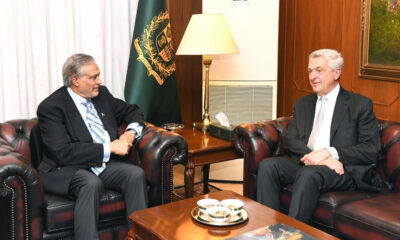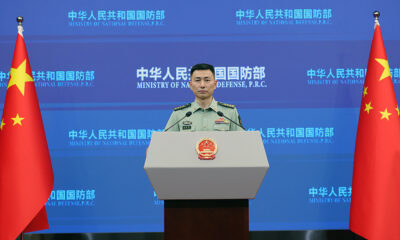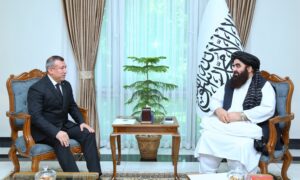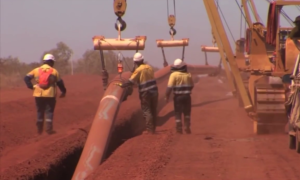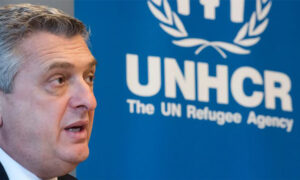Latest News
Ghani tells BBC his biggest mistake was trusting foreign partners
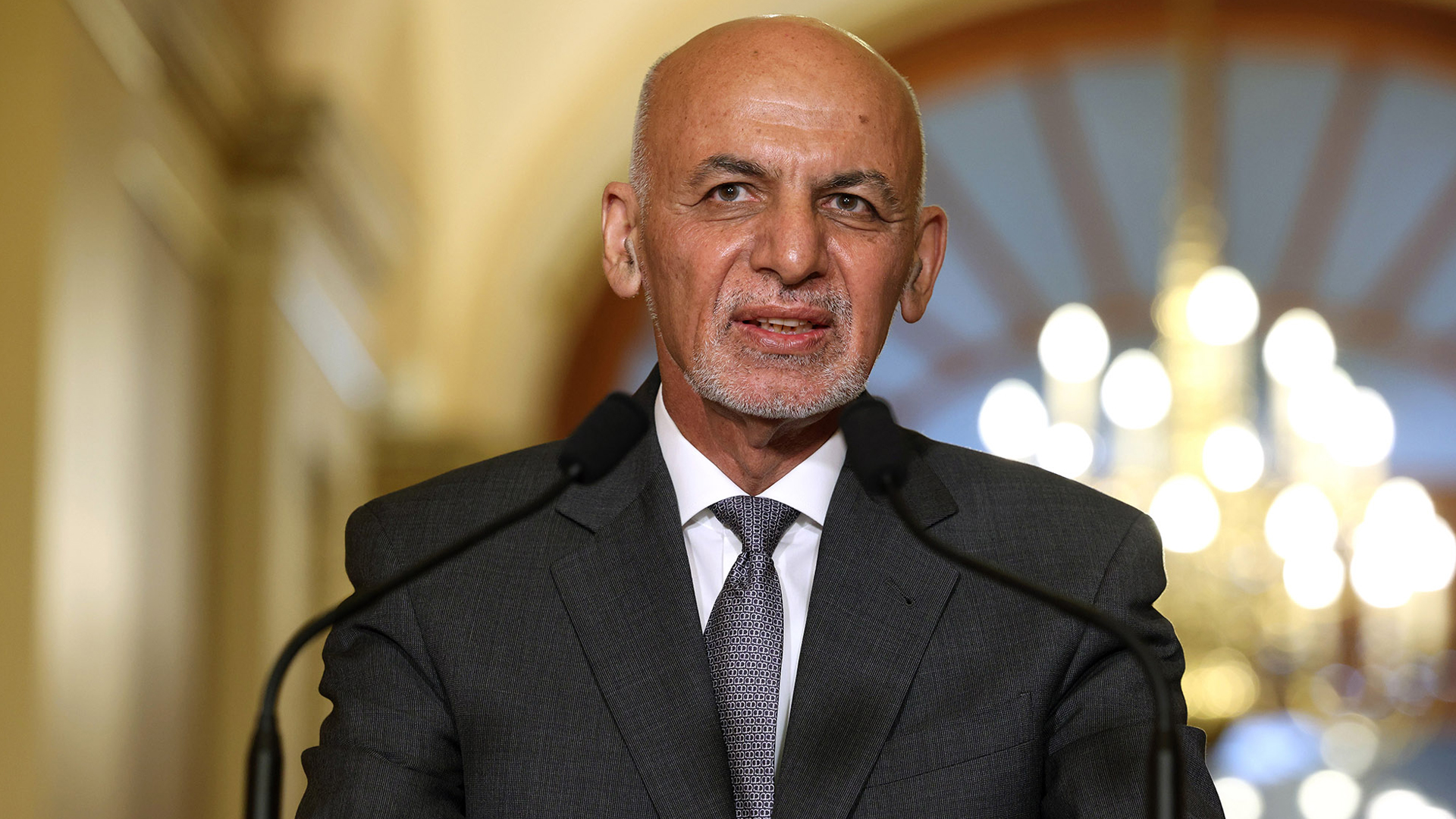
Former President Ashraf Ghani said on Thursday that his biggest mistake had been to trust the United States and Afghanistan’s other foreign partners.
In his first interview since fleeing the country in mid-August, the former president told BBC Radio 4 that leaving Afghanistan had not been planned and that only after takeoff in a helicopter did this course of action become clear.
Ghani has been heavily criticized and accused of abandoning the country but he defended his decision to flee.
The Islamic Emirate of Afghanistan (IEA) seized power in August after taking control of Kabul – just hours after Ghani fled the country.
Ghani told BBC that when he woke up on 15 August he had “no inkling” it would be his last day in Afghanistan.
In a conversation with General Sir Nick Carter, the UK’s former Chief of the Defence Staff, who was guest-editing BBC Radio 4’s Today program on Thursday, Ghani said IEA fighters had agreed not to enter Kabul – “but two hours later, this was not the case”.
“Two different factions of the Taliban (IEA) were closing in from two different directions,” Ghani said. “And the possibility of a massive conflict between them that would destroy the city of five million and bring havoc to the people was enormous.”
He said he agreed to let his national security adviser and wife leave Kabul, but then the “terrified” chief of presidential security came to him to say that if he took a stand, “they will all be killed”.
“He did not give me more than two minutes,” Ghani said. “My instructions had been to prepare for departure for [the city of] Khost. He told me that Khost had fallen and so had Jalalabad.
“I did not know where we will go. Only when we took off, it became clear that we were leaving [Afghanistan]. So this really was sudden.”
Ghani was widely criticized for having fled the country, also by his vice-president Amrullah Saleh, who called it “disgraceful”.
Many people, who were privy to talks at the time, have said in the past few months that Ghani’s sudden secret departure on 15 August scuppered a deal to secure a more orderly transition.
Ghani, who is living in the UAE, said in conversation that he misread US politics and the situation on the ground at the time.
Allegations of him having taken vast amounts of money also emerged following his departure and just this week was he named as one of the most corrupt people in the world.
Ghani however denied this and said he would welcome an international investigation into the allegations so that he can clear his name.
“I want to categorically state, I did not take any money out of the country,” he said, adding: “My style of life is known to everyone. What would I do with money?”
He did however acknowledge that mistakes were made, including “assuming that the patience of the international community would last”.
However, he pointed to the agreement made between the IEA and the US under then-President Donald Trump, which paved the way for the events leading to 15 August.
“Instead of a peace process, we got a withdrawal process,” Ghani said. The way the deal was done “erased us”, said Ghani.
Ghani said that what happened on August 15 was “a violent coup, not a political agreement, or a political process where the people have been involved”.
The same day Ghani left Kabul, the IEA took control. Since then, the country has been thrown into a humanitarian and economic crisis, exacerbated by the removal of donor support and foreign aid as well as the freezing of over $9 billion of Afghanistan’s foreign reserves.
Four months later, Ghani says he is willing to take the blame for some things which led to the fall of Kabul – like trusting “in our international partnership”.
He told BBC that his “life work has been destroyed. My values had been trampled on. And I have been made a scapegoat.”
Latest News
US Congress to hold meeting to review situation of Afghan women

The U.S. Congressional Human Rights Commission said in a statement it will hold a meeting on Tuesday this week to review the situation of Afghan women.
This meeting will be held on Tuesday next week with the presence of Rina Amiri, the US special representative for Afghan women’s affairs, Heather Barr, director of the Women’s Rights Division at Human Rights Watch and a number of other Afghan women.
Based on the statement of the commission, the participants of this meeting will review the human rights issues including the situation of women and girls in Afghanistan and provide recommendations for the action of the US Congress.
“Since August 2021, the situation of Afghan women and girls has significantly worsened. A growing list of severe restrictions imposed by the Taliban has severely reduced women’s ability to participate in public life,” the statement read.
This commission also pointed to the prohibition of women from work and denial of access to education, adding that the control over women’s private lives has increased.
Meanwhile, the Islamic Emirate has always rejected concerns about the violation of women’s rights in Afghanistan and emphasized that it is committed to respecting women’s rights in accordance with Islamic Sharia.
Latest News
Pakistan and Turkmenistan agree to fast-track gas pipeline project involving Afghanistan and India
The Turkmenistan-Afghanistan-Pakistan-India (TAPI) pipeline will originate from Galkynysh, the world’s second-biggest gas field, and end at the Indian city of Fazilka near the Pakistan border.
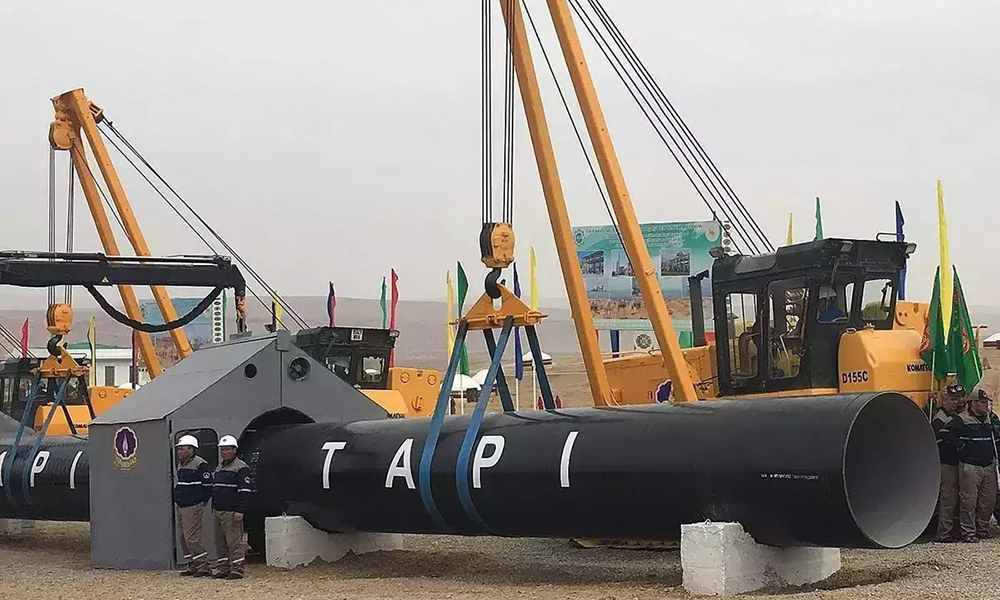
Pakistan and Turkmenistan agreed on Wednesday to fast-track a major pipeline project that will allow the Central Asian state to supply natural gas to Pakistan and India via Afghanistan, thereby enhancing economic activity across the region and benefiting all involved countries.
The understanding between the two states was reached during a meeting between Federal Minister for Petroleum Dr. Musadik Malik and Turkmenistan’s Foreign Affairs Rasit Meredow who arrived on a two-day visit to Islamabad on Tuesday.
The Turkmenistan-Afghanistan-Pakistan-India (TAPI) pipeline will originate from Galkynysh, the world’s second-biggest gas field, and end at the Indian city of Fazilka near the Pakistan border.
If the project is implemented, it will help Turkmenistan supply about 33 billion cubic meters (bcm) of natural gas each year along a route covering a distance of over 1,800 kilometers.
According to an official statement released by the Ministry of Energy’s Petroleum Division, Pakistan and Turkmenistan are working to “expedite” the pipeline project.
“TAPI pipeline project will lower energy costs, which can boost industrial growth, create jobs and foster economic development,” it quoted Pakistan’s petroleum minister as saying during the meeting. “Reliable and affordable energy supplies are vital for industrial sectors and overall economic stability.”
“This project, aimed at fostering economic integration and energy security, has witnessed substantial progress through collaborative efforts,” he continued, stressing the importance of continued engagement between the two countries.
Malik added Pakistan was fully committed to the project which was vital for regional energy cooperation and infrastructure development.
The visiting dignitary expressed appreciation for the warm welcome extended to his delegation by the Pakistani authorities.
“Together we will chalk out a roadmap for cooperation between both countries,” he added.
The meeting was also attended by the CEO of TAPI Pipeline Company Limited.
Other participants of the meeting emphasized the project’s strategic importance in enhancing regional connectivity, promoting economic growth and meeting the energy demands of participating nations.
The TAPI project was envisaged in the early 1990s and officially agreed upon in December 2010.
It has primarily been delayed due to security concerns, geopolitical tensions, funding challenges and bureaucratic hurdles.
Related Stories:
Acting FM discusses TAPI project with Turkmenistan’s envoy in Kabul
Latest News
Pakistan, UNHCR agree on lasting solutions for afghan refugees
The recent attacks and violent demonstrations by Afghani diaspora against Pakistan’s Diplomatic Missions in Frankfurt, London and Brussels also came under discussion, Radio Pakistan reported.
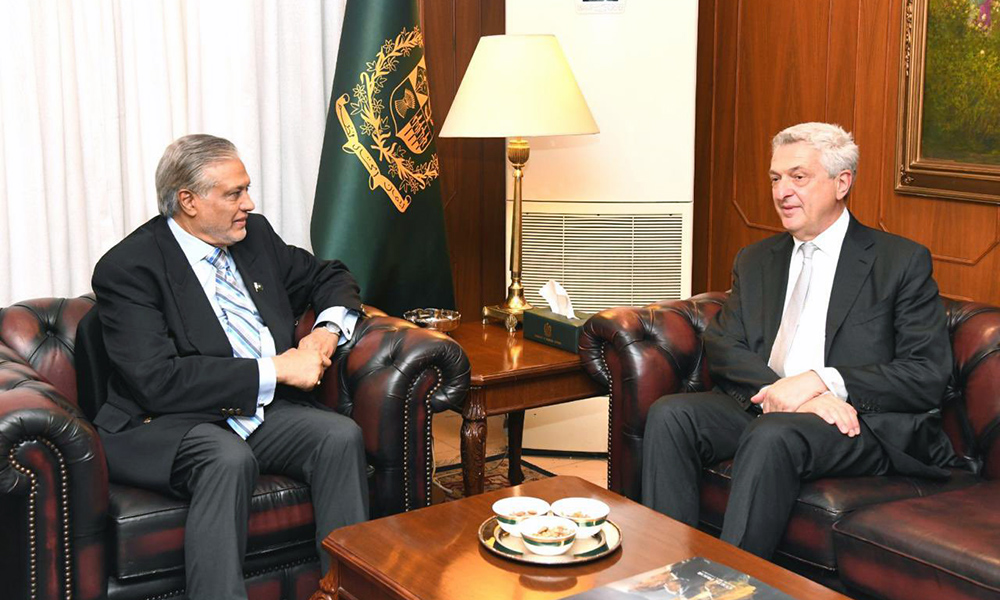
Pakistan’s Deputy Prime Minister and Foreign Minister Mohammad Ishaq Dar on Friday held a telephonic conversation with the United Nations High Commissioner for Refugees Filippo Grandi.
They discussed matters related to Pakistan-UNHCR cooperation.
The recent attacks and violent demonstrations by Afghani diaspora against Pakistan’s Diplomatic Missions in Frankfurt, London and Brussels also came under discussion, Radio Pakistan reported.
The High Commissioner appreciated Pakistan’s traditional hospitality towards Afghan refugees, in particular the recent decision by the Government of Pakistan to extend the validity of Proof of Registration Card.
Deputy Prime Minister and Foreign Minister and the High Commissioner agreed to continue to work together to advance Pakistan-UNHCR cooperation and find lasting solution to the issue of Afghan refugees, read the report.
This comes after the Ministry of Refugees and Repatriation of Afghanistan has announced that Pakistan has extended the POR (Proof of Registration) cards for Afghan refugees for another year.
On Thursday, July 25th, the Ministry reported on X that the Afghan Commissioner for Refugees in Islamabad confirmed the extension of POR cards for Afghan refugees residing in Pakistan. The new validity of these cards is from June 1, 2024, to June 30, 2025.
This extension comes amid rising tensions as the Pakistani government has been deporting over two thousand individuals daily. Despite the extension, Afghan refugees holding POR cards are increasingly concerned about the possibility of forced deportation to Afghanistan.
Related Stories:
Longer-term solutions needed for issue of Afghan refugees in Pakistan: UNHCR chief
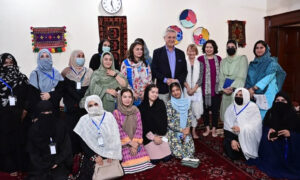
UNHCR chief discusses Afghan refugee issue with Pakistan’s deputy PM
-

 Sport4 days ago
Sport4 days agoOlympics finally here; What you need to know
-

 Latest News5 days ago
Latest News5 days agoOCHA reports 110 die in landmine explosions in Afghanistan every month
-

 Regional5 days ago
Regional5 days agoChina braces for twin tropical cyclones after deadly flash floods
-

 World5 days ago
World5 days agoBiden ends failing reelection campaign, backs Harris as nominee
-

 Health4 days ago
Health4 days agoHealth partners provide services 589,205 people in Afghanistan in last month
-

 Latest News3 days ago
Latest News3 days agoAfghanistan’s Hajj ministry confirms death of 27 pilgrims in Mecca and Medina
-

 Business4 days ago
Business4 days agoConference on Islamic microfinance kicks off in Kabul
-

 Sport4 days ago
Sport4 days agoACB proposes ODI fixtures against top-tiered teams










